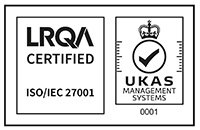Preservation

Keep your digital assets and digital collections usable over the medium to long term — even when digital systems and file formats change.
This service is being retired on 31 July 2024. We are no longer accepting new customers.
However, Jisc provide advice, guidance and consultancy about digital preservation and digital preservation systems. Please contact your relationship manager or email preservation-dps@jisc.ac.uk for more information.
If you’re already prepared to procure a digital preservation system, visit the digital preservation systems dynamic purchasing scheme (DPS) for the buyer’s guide and a list of participating vendors. Please contact your relationship manager or email preservation-dps@jisc.ac.uk to discuss purchasing options.
Preservation is a fully managed, SaaS, shared platform developed to support all your preservation needs.
We’ve co-designed the service with Jisc members and leading preservation systems suppliers (Artefactual and Preservica). Crucially, we’ve developed the service to support institutions with a wide variety of preservation requirements; any digital object can be preserved so the service offers benefits to all areas of your institution.
The service is interoperable with your existing systems and workflows. If your data is already stored in repositories, a current research information system (CRIS), or other data management systems, we will work with the supplier to ensure the systems work together seamlessly.
Benefits
- A managed, robust service hosted on a secure cloud-based platform
- Simpler data curation, with reliable, automated workflows that are easy for staff to use. Staff can identify and retain valuable material while disposing of obsolete data in a timely way, so they’re freed up to focus on other activities
- Reduced risk of data loss, damage or alteration when migrating metadata and digital objects into, and out of, storage systems
- It supports preservation of research where the researcher doesn’t have access to subject or funder repositories
- The service supports institutional reputation and research integrity, keeps your ERM data available and useable for auditing purposes and helps you demonstrate compliance with funder mandates on long-term availability
Member story: keeping up with digital archives
We worked with St George’s, University of London on the pilot of the preservation service, helping them to ensure that their records are compliant and accessible for years to come.
Why preservation?
If you’ve got robust back-up IT systems and multiple copies of digital files, or you have a repository for research outputs, you may think you’ve got preservation covered already.
With short-term file-saving solutions and one-time deposit systems files can usually be found, but their usability will deteriorate over time. That’s where a preservation policy and a preservation system come in. Together, they help to ensure digital assets are findable and usable long-term.
Preservation is an ongoing process that extends the ability to use information even beyond the lifetime of existing systems and formats.
A preservation system will ensure you fulfil your compliance obligations even when funder and publisher mandates specify that research outputs must be available for reuse for ten years or more. And it’ll allow you to play your part in national and international initiatives that promote open scholarship such as FAIR, building your institution’s reputation and extending the impact of its research and collections.
A preservation system will also help you fulfil your obligations regarding electronic records management (ERM).
Preservation can:
- Ingest selected data and metadata about any digital object, identify the necessary preservation actions and undertake them automatically
- Create archival versions of digital files and move them to long-term storage
- Undertake future preservation actions whenever they’re needed to maintain discoverability and reusability long term
- Support dissemination of research outputs by creating accessible versions and making them available as required
How to sign up
If you're interested in using our preservation service, contact your relationship manager or email help@jisc.ac.uk
After you sign up we can usually get you started within a few weeks. We'll just need to gather a few details from you to customise the service, then we’ll organise an onboarding meeting with you to kickstart the process.
Preservation service level agreement
Hours of service
Our standard cover runs from 09:00 to 17:00 (GMT/BST), from Monday to Friday (inclusive), but excluding public holidays for England and specific Jisc closure days (Jisc closure days are typically any non-public holiday days and between 25 December-1 January).
Our monitoring service runs 24/7 and major issues are dealt with accordingly by our out-of-hours incident team. Our service level agreement (SLA) timers run only during your agreed hours of cover. Our monitoring runs 24/7, 365 days of the year regardless of your cover.
Standard SLA
Priority type: Priority 1
Level: Critical
Respond within: 30 minutes
Diagnostic: 2 hours
Resolve within: 8 hours
Goal %: 99%
Priority type: Priority 2
Level: High
Respond within: 30 minutes
Diagnostic: 4 hours
Resolve within: 8 hours
Goal %: 99%
Priority type: Priority 3
Level: Medium
Respond within: 1 hour
Diagnostic: 8 hours
Resolve within: 16 hours
Goal %: 99%
Priority type: Priority 4
Level: Low
Respond within: 2 hours
Diagnostic: 8 hours
Resolve within: 16 hours
Goal %: 99%
Priority type: Priority 5
Level: Low
Respond within: 8 hours
Diagnostic: 16 hours
Resolve within: 40 hours
Goal %: 99%
Examples of priorities
- Priority 1 – service down (everyone is affected, and a major business process is stopped)
- Priority 2 – service slow (everyone is affected, and efficiency is degraded)
- Priority 3 – a function does not work but there is another way to achieve task (everyone is affected but there is an easy workaround)
- Priority 4 – only one person has an issue (your efficiency is lower but you’re the only person affected)
- Priority 5 – minor issue for only one person with a workaround
Overriding priorities
We aim to be flexible and recognise that sometimes there are special circumstances. Perhaps the issue affects your customers, or key staff are having issues with a critical project with an impending deadline.
Our technicians can override our standard priority assessment where there is good reason, if you have made us aware of it.
How to contact us
To report an incident, you can contact us in multiple ways.
- Raise a ticket through the Jisc helpdesk (between 07:00-00:00, Monday - Friday)
- Email help@jisc.ac.uk with the subject line "JORH"
- Telephone +44 (0) 330 300 2212
Scheduled maintenance
We will give two months' notice of any scheduled maintenance. Any outage during this time is not included in the calculation of the availability.
Emergency maintenance
From time to time we will need to carry out emergency maintenance not covered in the scheduled maintenance.
In the event of emergency maintenance being needed we will inform you with as much notice as we can.
Information security and safeguarding data
We use industry standards and best practices for your information security. As an organisation we conform to ISO/IEC 27001 code of practice.
The Jisc repository was ISO 27001 audited in February 2020. This includes: assessing security risks, taking account of the threats, vulnerabilities, impacts, implementing information security controls and review of these information security controls so they continue to meet security needs.
Review meetings
A quarterly review meeting will be held with a representative from Jisc to review the service, any issues and to see how we can provide a better service to you.
Hours of service
Our standard cover runs from 09:00 to 17:00 (GMT/BST), from Monday to Friday (inclusive), but excluding public holidays for England and specific Jisc closure days (Jisc closure days are typically any non-public holiday days and between 25 December-1 January).
Our monitoring service runs 24/7 and major issues are dealt with accordingly by our out-of-hours incident team. Our service level agreement (SLA) timers run only during your agreed hours of cover. Our monitoring runs 24/7, 365 days of the year regardless of your cover.
Standard SLA
Priority type: Priority 1
Level: Critical
Respond within: 30 minutes
Diagnostic: 2 hours
Resolve within: 8 hours
Goal %: 99%
Priority type: Priority 2
Level: High
Respond within: 30 minutes
Diagnostic: 4 hours
Resolve within: 8 hours
Goal %: 99%
Priority type: Priority 3
Level: Medium
Respond within: 1 hour
Diagnostic: 8 hours
Resolve within: 16 hours
Goal %: 99%
Priority type: Priority 4
Level: Low
Respond within: 2 hours
Diagnostic: 8 hours
Resolve within: 16 hours
Goal %: 99%
Priority type: Priority 5
Level: Low
Respond within: 8 hours
Diagnostic: 16 hours
Resolve within: 40 hours
Goal %: 99%
Examples of priorities
- Priority 1 – service down (everyone is affected, and a major business process is stopped)
- Priority 2 – service slow (everyone is affected, and efficiency is degraded)
- Priority 3 – a function does not work but there is another way to achieve task (everyone is affected but there is an easy workaround)
- Priority 4 – only one person has an issue (your efficiency is lower but you’re the only person affected)
- Priority 5 – minor issue for only one person with a workaround
Overriding priorities
We aim to be flexible and recognise that sometimes there are special circumstances. Perhaps the issue affects your customers, or key staff are having issues with a critical project with an impending deadline.
Our technicians can override our standard priority assessment where there is good reason, if you have made us aware of it.
How to contact us
To report an incident, you can contact us in multiple ways.
- Raise a ticket through the Jisc helpdesk (between 07:00-00:00, Monday - Friday)
- Email help@jisc.ac.uk with the subject line "JORH"
- Telephone +44 (0) 330 300 2212
Scheduled maintenance
We will give two months' notice of any scheduled maintenance. Any outage during this time is not included in the calculation of the availability.
Emergency maintenance
From time to time we will need to carry out emergency maintenance not covered in the scheduled maintenance.
In the event of emergency maintenance being needed we will inform you with as much notice as we can.
Information security and safeguarding data
We use industry standards and best practices for your information security. As an organisation we conform to ISO/IEC 27001 code of practice.
The Jisc repository was ISO 27001 audited in February 2020. This includes: assessing security risks, taking account of the threats, vulnerabilities, impacts, implementing information security controls and review of these information security controls so they continue to meet security needs.
Review meetings
A quarterly review meeting will be held with a representative from Jisc to review the service, any issues and to see how we can provide a better service to you.
ISO certification
This service is included within the scope of our ISO27001 certificate.
